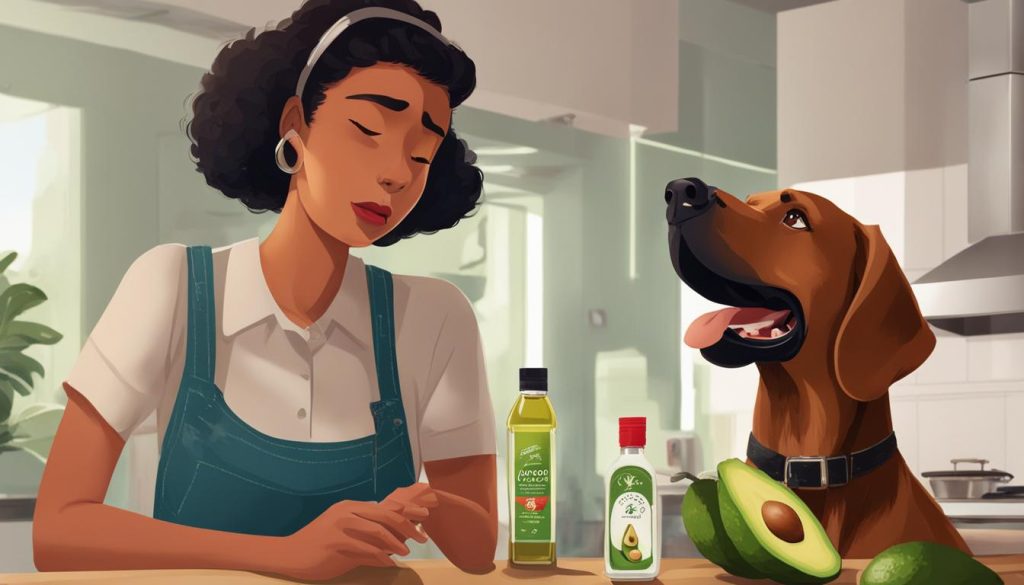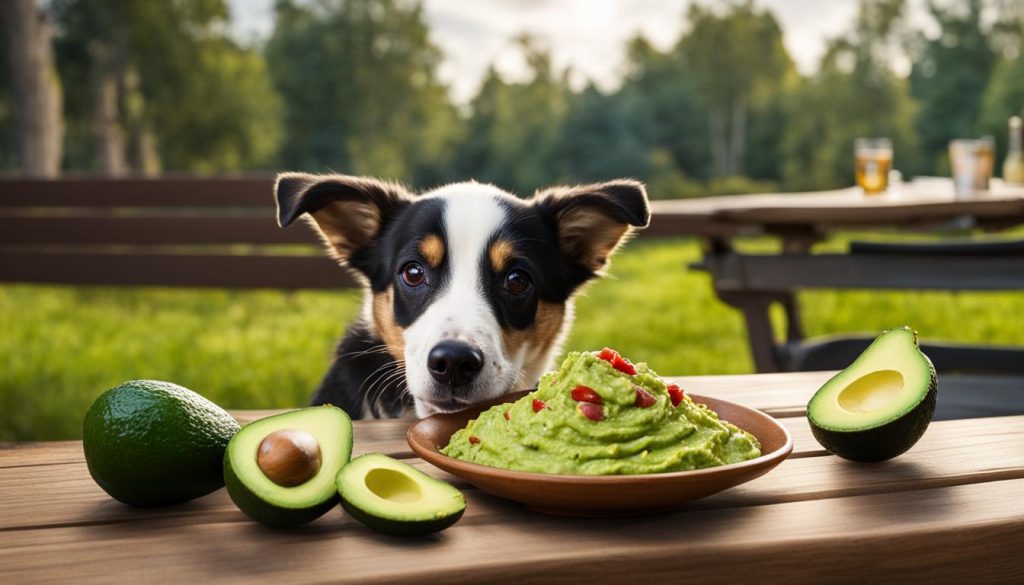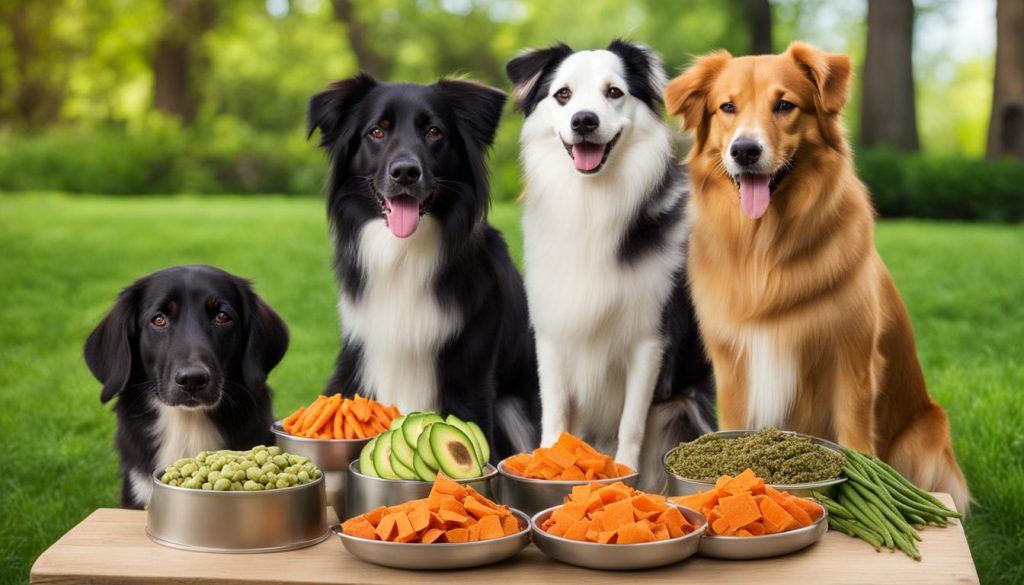As a professional in the field of dog health, I often get asked the question: Can dogs eat guacamole? While it may be tempting to share this tasty dip with your furry friend, there are some important considerations to keep in mind.
Guacamole is a popular Mexican dish made primarily from avocados. While avocados themselves are not toxic to dogs, they do pose some risks. Avocados contain a substance called persin, which can be toxic to dogs in large quantities. Additionally, the high fat content in avocados can lead to pancreatitis, a potentially serious condition in dogs.
But it’s not just the avocado itself that can be a problem. Guacamole often contains additional ingredients like onions and garlic, which are highly toxic to dogs. These ingredients can cause damage to your dog’s red blood cells and lead to anemia.
So, is guacamole safe for dogs? The answer is no. It’s best to avoid feeding guacamole to your dog altogether. Instead, opt for safe and healthy alternatives that your dog will enjoy.
Key Takeaways:
- Avocados contain persin, a toxic substance for dogs.
- The high fat content in avocados can lead to pancreatitis.
- Guacamole often contains onions and garlic, which are toxic to dogs.
- It’s best to avoid feeding guacamole to your dog and opt for safe alternatives.
- Consult with a veterinarian before introducing any new foods to your dog’s diet.
Can Dogs Have Avocado Oil?

When it comes to avocado oil, dog owners may wonder if it is safe to include in their pet’s diet. While avocado oil itself is not toxic to dogs, it is important to exercise caution before introducing it into their meals. Avocado oil is high in fat content, which can potentially lead to pancreatitis in dogs if consumed in excess.
While avocado oil may offer health benefits for humans, such as being rich in monounsaturated fats and antioxidants, dogs have different dietary needs and tolerances. It is recommended to consult with a veterinarian before incorporating avocado oil into your dog’s diet to ensure it aligns with their specific health requirements.
Instead of avocado oil, there are other oils that are safer and beneficial for dogs. For example, fish oil is commonly used to promote healthy skin and coat, while coconut oil can provide a boost to their immune system. These alternatives offer nutritional value without the potential risks associated with avocado oil.
Can Dogs Be Allergic to Avocado?

While avocados may be toxic to dogs due to the presence of persin, some dogs may also develop allergies to avocado. Although avocado allergies in dogs are considered rare, it is possible for them to develop an immune response to the fruit. Just like humans, dogs can develop food allergies with repeated exposure.
If your dog frequently consumes avocado and shows signs of an allergic reaction, it is important to consult with a veterinarian. Some common symptoms of an avocado allergy in dogs include itching, skin rashes, hives, gastrointestinal upset, and even difficulty breathing. Allergic reactions can vary in severity, so prompt medical attention is necessary to determine the best course of action.
Allergies in Dogs: Common Signs and Symptoms
- Itching, scratching, and excessive licking
- Skin redness, rashes, or hives
- Swelling, particularly around the face, eyes, or ears
- Gastrointestinal distress, such as vomiting or diarrhea
- Difficulty breathing or wheezing
- Sneezing or coughing
If you suspect that your dog has an avocado allergy or any other food allergy, it is crucial to work with a veterinarian to determine the exact cause and develop an appropriate treatment plan. The veterinarian may recommend an elimination diet to identify the specific food allergen or may perform allergy testing to pinpoint the culprit.
In the case of an avocado allergy, it is important to avoid feeding avocados or any avocado-containing products to your dog. Always read ingredient labels carefully to ensure that avocado or avocado oil is not present in the food or treats you offer to your dog. Additionally, consider discussing alternative dietary options with your veterinarian to ensure your dog receives a well-balanced and allergen-free diet.
What To Do if Your Dog Eats Avocado

If your dog consumes avocado, it’s essential to monitor them for any signs of gastrointestinal distress. While the flesh of an avocado is not toxic to dogs, the pit and skin pose a choking hazard and can cause intestinal blockage. Here are the steps to take if your dog eats avocado:
1. Assess the situation
Determine how much avocado your dog ate and if they ingested the pit or skin. If they only consumed a small amount of flesh, they will likely be fine. However, if they ate the pit or show signs of choking or obstruction, immediate veterinary attention is necessary.
2. Watch for symptoms
Keep a close eye on your dog for any signs of gastrointestinal distress, such as vomiting, diarrhea, loss of appetite, or abdominal discomfort. If these symptoms persist or worsen, it’s important to seek veterinary care promptly.
3. Contact your veterinarian
Reach out to your veterinarian to discuss the situation and seek their guidance. They will be able to provide proper advice based on your dog’s individual circumstances. Depending on the severity of the ingestion and your dog’s overall health, they may recommend immediate veterinary care or provide instructions on how to monitor and manage your dog’s condition at home.
| Symptoms to monitor | Actions to take |
|---|---|
| Vomiting or diarrhea | Monitor closely, seek veterinary care if symptoms persist or worsen |
| Choking or obstruction | Seek immediate veterinary attention |
| Loss of appetite | Monitor closely, seek veterinary care if appetite does not return |
| Abdominal discomfort | Monitor closely, contact your veterinarian for guidance |
Remember, each dog is unique, and their reaction to avocado ingestion may vary. It is always best to consult with a veterinarian for personalized advice and guidance regarding your dog’s health. They will be able to provide you with the most accurate information based on your dog’s specific situation.
How Vets Treat Dogs That Ate Too Much Avocado

When dogs consume too much avocado, it can lead to avocado toxicity, resulting in gastrointestinal distress and potential complications. If your dog has ingested a significant amount of avocado and is experiencing symptoms such as vomiting, diarrhea, or abdominal pain, it is crucial to seek veterinary treatment promptly.
The treatment for dogs that have eaten too much avocado typically involves supportive care to alleviate symptoms and address potential complications. This may include administering fluids to prevent dehydration, medications to alleviate gastrointestinal distress, and anti-inflammatory drugs to reduce inflammation in cases of pancreatitis.
In more severe cases, extensive diagnostic tests such as blood work and x-rays may be necessary to assess the extent of the damage caused by avocado ingestion. If pancreatitis is diagnosed, your dog may require hospitalization for intravenous fluid therapy and close monitoring.
| Treatment for Dogs That Ate Too Much Avocado | Details |
|---|---|
| Supportive Care | – Administering fluids to prevent dehydration – Medications to alleviate gastrointestinal distress – Anti-inflammatory drugs for pancreatitis |
| Diagnostic Tests | – Blood work to assess organ function – X-rays to check for intestinal blockage – Ultrasound to evaluate pancreas health |
| Hospitalization | – Intravenous fluid therapy for severe cases – Close monitoring of symptoms and vital signs |
It is important to note that prevention is the best approach when it comes to avocado toxicity in dogs. To avoid potential harm, be sure to keep avocados and guacamole out of your dog’s reach. Additionally, always consult with a veterinarian before introducing any new foods to your dog’s diet to ensure their overall health and well-being.
When it comes to finding safe and tasty alternatives to guacamole for dogs, there are plenty of options to choose from. Here are some nutritious and dog-friendly snacks that you can offer as a healthy substitute:
1. Carrots:

Carrots are low in calories and high in fiber, making them a great choice for dogs. They are also rich in vitamins A and C, which support a healthy immune system and promote good vision.
2. Green Beans:
Green beans are a nutritious and crunchy snack that dogs love. They are low in calories and high in fiber, making them a great option for dogs on a weight management plan. Green beans also provide vitamins A, C, and K, as well as minerals like calcium and iron.
3. Blueberries:
Blueberries are packed with antioxidants and are a delicious treat for dogs. They are low in calories and high in fiber, promoting a healthy digestive system. Blueberries also contain vitamins C and E, which support the immune system and promote healthy skin and coat.
Remember to always introduce new foods to your dog’s diet gradually and in moderation. It is also important to remove any pits, seeds, or cores from fruits and vegetables before offering them to your dog. By providing these safe and nutritious alternatives, you can ensure that your dog enjoys a healthy and well-balanced diet!
Are Other Fruits and Vegetables Safe for Dogs?

While avocados may not be safe for dogs to consume, there are plenty of other fruits and vegetables that can be a healthy addition to their diet. Here are some examples of safe fruits for dogs:
- Apples (without seeds)
- Bananas
- Blueberries
- Strawberries
- Watermelon
These fruits can be given to dogs in moderation, providing them with vitamins, minerals, and antioxidants. However, it’s important to remember that fruits should be offered as a treat and not as a replacement for a balanced dog food diet.
When it comes to safe vegetables for dogs, there are several options you can consider:
- Carrots
- Celery
- Green beans
- Peas
Vegetables like these can be given to dogs as a healthy snack or as part of their regular meals. They provide fiber and nutrients that can support your dog’s overall health. Just make sure to prepare them properly by washing, cutting into appropriate sizes, and removing any potential choking hazards.
Remember, it’s always a good idea to introduce new fruits and vegetables gradually and in small amounts to ensure your dog tolerates them well. If you have any concerns or questions about specific fruits or vegetables, consult with your veterinarian for professional guidance.
| Fruits | Benefits |
|---|---|
| Apples (without seeds) | Good source of vitamin C and fiber |
| Bananas | Provide potassium and vitamins B6 and C |
| Blueberries | High in antioxidants and beneficial for the immune system |
| Strawberries | Contain vitamin C and fiber |
| Watermelon | Hydrating and low in calories |
Sources:
- American Kennel Club – Dog Breeds
- ASPCA – American Society for the Prevention of Cruelty to Animals
Avocado and Guacamole Precautions for Dog Owners
As responsible dog owners, it is important for us to understand the potential risks associated with avocados and guacamole when it comes to our furry friends. While avocados may offer some health benefits to humans, they can pose various dangers to dogs that we need to be aware of. Here are some precautions to keep in mind:
Avoid Feeding Guacamole to Dogs
Guacamole often contains ingredients like onions and garlic, which are toxic to dogs. These ingredients can cause anemia and gastrointestinal upset in our four-legged companions. It’s best to avoid feeding guacamole to dogs altogether, even in small quantities.
Keep Avocados Out of Reach
Avocados contain a pit and skin that can be dangerous for dogs. The pit poses a choking hazard, while the skin can cause intestinal obstruction if swallowed. Make sure to keep avocados stored in a secure place where your dog cannot access them.
Consult with a Veterinarian
Before introducing any new foods or ingredients to your dog’s diet, it’s always a good idea to consult with a veterinarian. They can provide you with personalized advice and guidance based on your dog’s specific needs and health conditions. Your vet can help you determine if avocados or guacamole are safe for your dog or if there are any better alternatives that you can offer.
Wrapping Up
After carefully considering the potential risks and benefits, it is clear that guacamole and avocados should be avoided as part of a dog’s diet. While avocados contain vitamins and antioxidants that can be beneficial, they also pose significant dangers to our canine companions.
The high levels of fat in avocados can lead to pancreatitis, a condition that can cause severe abdominal pain and inflammation. Additionally, the pit and skin of avocados can present a choking hazard and potentially cause intestinal blockage if swallowed.
Therefore, it is crucial to prioritize the well-being and safety of our furry friends by steering clear of guacamole and avocados. Instead, we can offer them a variety of safe alternatives like carrots, celery, green beans, and fruits such as apples and bananas, in moderation.
Remember, it is always wise to consult with a veterinarian before introducing any new foods to your dog’s diet to ensure their overall health and prevent any potential harm.
FAQ
Can dogs eat guacamole?
No, guacamole is not safe for dogs. It often contains additional ingredients, like onions and garlic, which are toxic to dogs. Avocado, the main component of guacamole, contains high levels of fat and can lead to pancreatitis in dogs. It is best to avoid feeding guacamole to dogs.
Can dogs have avocado oil?
Avocado oil is not toxic to dogs, but it is high in fat and can trigger pancreatitis. While avocado oil is not considered safe for dogs, there are other oils that are safe and beneficial for them, such as fish or coconut oil.
Can dogs be allergic to avocado?
While avocado allergies in dogs are rare, it is possible for them to develop a food allergy with repeated exposure. If your dog frequently consumes avocado and shows signs of an allergic reaction, it is best to consult with a veterinarian.
What to do if your dog eats avocado?
If your dog eats avocado, monitor them for any symptoms of gastrointestinal distress, such as vomiting or diarrhea. If they only consumed a small amount of avocado flesh, they will likely be fine. However, if your dog ate the pit or shows signs of choking or obstruction, it is important to seek immediate veterinary attention.
How do vets treat dogs that ate too much avocado?
Treatment for dogs that have ingested too much avocado and are experiencing gastrointestinal distress typically involves supportive care, such as fluids and medications to alleviate symptoms. In more severe cases, blood tests and x-rays may be necessary to assess the extent of the damage.
What are some avocado alternatives for dogs?
Instead of feeding guacamole to your dog, there are many safe and healthy alternatives that you can offer as snacks. Carrots, celery, green beans, and peas are all nutritious options. Fruits like apples (without seeds), bananas, blueberries, and strawberries can also be given in moderation.
Are other fruits and vegetables safe for dogs?
Yes, there are many other fruits and vegetables that are safe and beneficial for dogs. Carrots, celery, green beans, peas, apples (without seeds), bananas, blueberries, strawberries, and watermelon are all examples of fruits and vegetables that can be given to dogs in moderation. It is important to research before sharing any human food with your dog to ensure its safety.
What are the precautions for dog owners regarding avocado and guacamole?
As a dog owner, it is important to be aware of the potential dangers of avocados and guacamole for your pet. Avoid feeding guacamole to dogs due to the presence of ingredients like onions and garlic that are toxic to them. Keep avocados out of your dog’s reach, as they can pose a choking hazard or cause intestinal obstruction if swallowed. Always consult with a veterinarian before introducing any new foods to your dog’s diet to ensure their safety.






